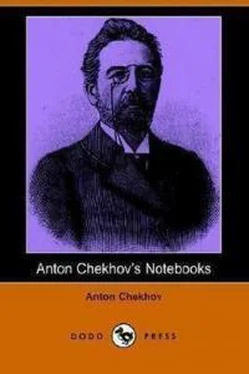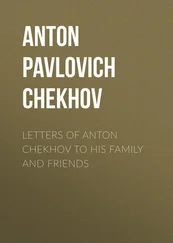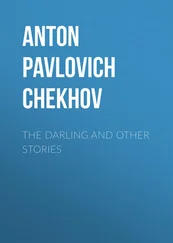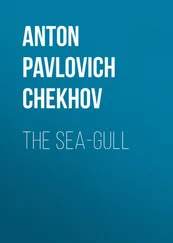Антон Чехов - Notebooks of Anton Chekhov
Здесь есть возможность читать онлайн «Антон Чехов - Notebooks of Anton Chekhov» весь текст электронной книги совершенно бесплатно (целиком полную версию без сокращений). В некоторых случаях можно слушать аудио, скачать через торрент в формате fb2 и присутствует краткое содержание. Год выпуска: 2014, Издательство: epubBooks Classics, Жанр: Биографии и Мемуары, на английском языке. Описание произведения, (предисловие) а так же отзывы посетителей доступны на портале библиотеки ЛибКат.
- Название:Notebooks of Anton Chekhov
- Автор:
- Издательство:epubBooks Classics
- Жанр:
- Год:2014
- ISBN:нет данных
- Рейтинг книги:4 / 5. Голосов: 1
-
Избранное:Добавить в избранное
- Отзывы:
-
Ваша оценка:
- 80
- 1
- 2
- 3
- 4
- 5
Notebooks of Anton Chekhov: краткое содержание, описание и аннотация
Предлагаем к чтению аннотацию, описание, краткое содержание или предисловие (зависит от того, что написал сам автор книги «Notebooks of Anton Chekhov»). Если вы не нашли необходимую информацию о книге — напишите в комментариях, мы постараемся отыскать её.
Notebooks of Anton Chekhov — читать онлайн бесплатно полную книгу (весь текст) целиком
Ниже представлен текст книги, разбитый по страницам. Система сохранения места последней прочитанной страницы, позволяет с удобством читать онлайн бесплатно книгу «Notebooks of Anton Chekhov», без необходимости каждый раз заново искать на чём Вы остановились. Поставьте закладку, и сможете в любой момент перейти на страницу, на которой закончили чтение.
Интервал:
Закладка:
* * * * *
Essentially all this is crude and meaningless, and romantic love appears as meaningless as an avalanche which involuntarily rolls down a mountain and overwhelms people. But when one listens to music, all this is: that some people lie in their graves and sleep, and that one woman is alive—gray–haired, she is sitting in a box in the theatre, quiet and majestic, and the avalanche seems no longer meaningless, since in nature everything has a meaning. And everything is forgiven, and it would be strange not to forgive.
* * * * *
Olga Ivanovna regarded old chairs, stools, sofas, with the same respectful tenderness as she regarded old dogs and horses, and her room, therefore, was something like an alms–house for furniture. Round the mirror, on all tables and shelves, stood photographs of uninteresting, half–forgotten people; on the walls hung pictures at which nobody ever looked; and it was always dark in the room, because there burnt there only one lamp with a blue shade.
* * * * *
If you cry "Forward," you must without fail explain in which direction one must go. Do you not see that, if without explaining the direction, you fire off this word simultaneously at a monk and at a revolutionary, they will proceed in precisely opposite directions?
* * * * *
It is said in Holy Writ: "Fathers, do not irritate your children," even the wicked and good–for–nothing children; but the fathers irritate me, irritate me terribly. My contemporaries chime in with them and the youngsters follow, and every minute they strike me in the face with their smooth words.
* * * * *
That the aunt suffered and did not show it gave him the impression of a trick.
* * * * *
O.I. was in constant motion; such women, like bees, carry about a fertilizing pollen….
* * * * *
Don't marry a rich woman—she will drive you out of the house; don't marry a poor woman—you won't sleep; but marry the freest freedom, the lot and life of a Cossack. (Ukrainian saying.)
* * * * *
Aliosha : "I often hear people say: 'Before marriage there is romance, and then—goodbye, illusion!' How heartless and coarse it is."
* * * * *
So long as a man likes the splashing of a fish, he is a poet; but when he knows that the splashing is nothing but the chase of the weak by the strong, he is a thinker; but when he does not understand what sense there is in the chase, or what use in the equilibrium which results from destruction, he is becoming silly and dull, as he was when a child. And the more he knows and thinks, the sillier he becomes.
* * * * *
The death of a child . I have no sooner sat down in peace than—bang—fate lets fly at me.
* * * * *
The she–wolf, nervous and anxious, fond of her young, dragged away a foal into her winter–shelter, thinking him a lamb. She knew that there was a ewe there and that the ewe had young. While she was dragging the foal away, suddenly some one whistled; she was alarmed and dropped him, but he followed her. They arrived at the shelter. He began to suck like the young wolves. Throughout the winter he changed but little; he only grew thin and his legs longer, and the spot on his forehead turned into a triangle. The she–wolf was in delicate health. [19] A sketch of part of the story "Whitehead."
* * * * *
They invited celebrities to these evening parties, and it was dull because there are few people of talent in Moscow, and the same singers and reciters performed at all evening parties.
* * * * *
She has not before felt herself so free and easy with a man.
* * * * *
You wait until you grow up and I'll teach you declamation.
* * * * *
It seemed to her that at the show many of the pictures were alike.
* * * * *
There filed up before you a whole line of laundry–maids.
* * * * *
Kostya insisted that the women had robbed themselves.
* * * * *
L. put himself in the place of the juryman and interpreted it thus: if it was a case of house–breaking, then there was no theft, because the laundresses themselves sold the linen and spent the money on drink; but if it was a case of theft, then there could have been no house–breaking.
* * * * *
Fiodor was flattered that his brother had found him at the same table with a famous actor.
* * * * *
When Y. spoke or ate, his beard moved as if he had no teeth in his mouth.
* * * * *
Ivashin loved Nadya Vishnyevsky and was afraid of his love. When the butler told him that the old lady had just gone out, but the young lady was at home, he fumbled in his fur coat and dress–coat pocket, found his card, and said: "Right."
But it was not all right. Driving from his house in the morning, to pay a visit, he thought that he was compelled to it by conventions of society, which weighed heavily upon him. But now it was clear to him that he went to pay calls only because somewhere far away in the depths of his soul, as under a veil, there lay hidden a hope that he would see Nadya…. And he suddenly felt pitiful, sad, and a little frightened….
* * * * *
In his soul, it seemed to him, it was snowing, and everything faded away. He was afraid to love Nadya, because he was too old for her, thought his appearance unattractive, and did not believe that young girls like Nadya could love men for their minds and spiritual qualities. Still there would at times rise in him something like a hope. But now, from the moment when the officer's spurs jingled and then died away, there also died away his timid love…. All was at an end, hope was impossible…. "Yes, now all is finished," he thought, "I am glad, very glad."
* * * * *
He imagined his wife to be not Nadya, but always, for some reason, a stout woman with a large bosom, covered with Venetian lace.
* * * * *
The clerks in the office of the Governor of the island have a drunken headache. They long for a drink. They have no money. What is to be done? One of them, a convict who is serving his time here for forgery, devises a plan. He goes to the church, where a former officer, now exiled for giving his superior a box on the ears, sings in the choir, and says to him panting: "Here! There's a pardon come for you! They have got a telegram in the office."
The late officer turns pale, trembles, and can hardly walk for excitement.
"But for such news you ought to give something for a drink," says the clerk.
"Take all I have! All!"
And he hands him some five roubles…. He arrives at the office. The officer is afraid that he may die from joy and presses his hand to his heart.
"Where is the telegram?"
"The bookkeeper has put it away." (He goes to the bookkeeper.) General laughter and an invitation to drink with them.
"How terrible!"
After that the officer was ill for a week. [20] An episode which Chekhov heard during his journey in the island, Saghalien.
* * * * *
Fedya, the steward's brother–in–law, told Ivanov that wild–duck were feeding on the other side of the wood. He loaded his gun with slugs. Suddenly a wolf appeared. He fired and smashed both the wolf's hips. The wolf was mad with pain and did not see him. "What can I do for you, dear?" He thought and thought, and then went home and called Peter…. Peter took a stick, and with an awful grimace, began to beat the wolf…. He beat and beat and beat until it died…. He broke into a sweat and went away, without saying a single word.
* * * * *
Vera : "I do not respect you, because you married so strangely, because nothing came of you…. That is why I have secrets from you."
* * * * *
It is unfortunate that we try to solve the simplest questions cleverly, and therefore make them unusually complicated. We should seek a simple solution.
Читать дальшеИнтервал:
Закладка:
Похожие книги на «Notebooks of Anton Chekhov»
Представляем Вашему вниманию похожие книги на «Notebooks of Anton Chekhov» списком для выбора. Мы отобрали схожую по названию и смыслу литературу в надежде предоставить читателям больше вариантов отыскать новые, интересные, ещё непрочитанные произведения.
Обсуждение, отзывы о книге «Notebooks of Anton Chekhov» и просто собственные мнения читателей. Оставьте ваши комментарии, напишите, что Вы думаете о произведении, его смысле или главных героях. Укажите что конкретно понравилось, а что нет, и почему Вы так считаете.











